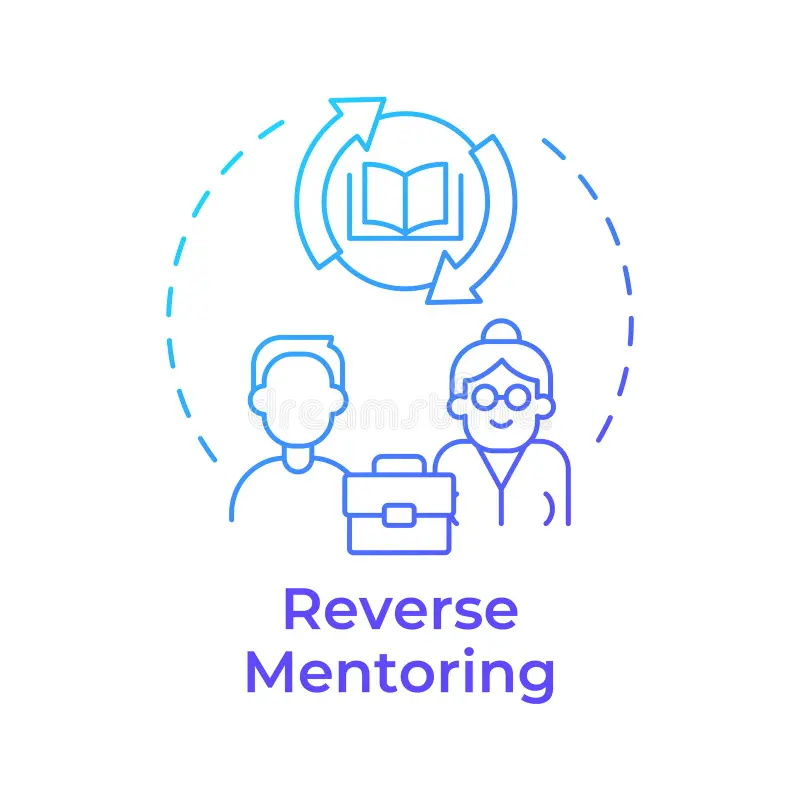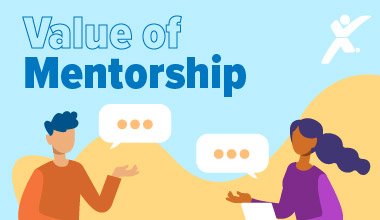When the Tables Turned
If you had told me a few years ago that I’d be reverse mentored by a 23-year-old, I’d have laughed you out of the room. Like many of us, I believed wisdom flows from the top down—seasoned veterans guiding the fresh faces. But work has a way of humbling you. And in early 2023, that’s exactly what happened.
It started with Maya, a brilliant, fast-talking intern fresh out of university. Glued to her phone, quick with new ideas, and full of energy I couldn’t quite decode. At first, I kept my distance. I figured she’d “learn how we do things around here.”
But within weeks, I realized: I was the one doing most of the learning.
What Is Reverse Mentorship, Really?
Reverse mentorship flips the traditional dynamic: younger professionals mentor more senior ones, often around emerging tech, digital culture, or new ways of working. It sounds trendy on paper, but in practice? It’s humbling. You have to be okay admitting what you don’t know—like how TikTok isn’t “just dancing,” or why Gen Z treats Slack emojis like a second language.
Lesson #1: Get Comfortable Being Uncomfortable
One morning, I asked Maya how she stays ahead on industry trends. She smiled and said, “You just follow the right people on LinkedIn and Substack.”
I had never felt older.
But that moment was a turning point. I dropped the ego and asked her to walk me through her feed curation and tools. In an hour, she showed me workflows that made my neatly bookmarked folders look like museum pieces.
Her digital fluency wasn’t just impressive—it was effective.
How Gen Z Works Differently

Maya’s generation doesn’t worship “hustle culture” the way mine did. I wore 12-hour days like a badge of honor in my 20s. Maya once said, “If I have to work that much, I’m doing something wrong—or not automating enough.”
At first, I thought that sounded lazy. But then she showed me how she uses tools to automate outreach, filter information, and manage workflows. It wasn’t laziness—it was strategy.
That mindset shift changed how I schedule my time today.
The TikTok Wake-Up Call
I used to scoff at TikTok—thought it was a playground for viral nonsense. Maya challenged me to spend an hour observing the platform. And she was right. Beneath the chaos was a goldmine of trends, micro-education, and cultural signals.
We ended up launching a mini video campaign inspired by the platform’s style. It outperformed our polished corporate content by miles. That was the moment I stopped underestimating Gen Z’s instincts.
Feedback Culture: Fast, Frequent, Honest
Another surprise? Gen Z’s approach to feedback. Maya didn’t wait for reviews—she asked for input constantly. “Was that clear?” “Could I have framed it better?”
At first, I found it needy. But I soon realized it created a faster feedback loop. And when I started applying the same approach to my own work—it felt liberating.
Reverse Mentorship Is Messy—and Worth It
Let’s be real: sometimes it feels like giving up authority. Other times, I feel like an old dog trying to learn TikTok tricks. But vulnerability is the price of growth. And this experience reminded me that experience doesn’t mean you know everything—it means you know enough to admit when you don’t.
A Few Lessons I’m Still Learning from Reverse Mentorships
- Don’t fake it. Gen Z can sniff inauthenticity a mile away. Ask questions. Be honest.
- Stay curious, not defensive. If a younger colleague challenges your thinking—listen.
- Give back. They may teach you new tools, but they still crave your experience in return.
The Gift I Didn’t Expect
What surprised me most was how energized I felt. Reverse mentorship re-ignited the spark I had when I first entered the workplace—hungry to learn, eager to try, unafraid to fail. It reminded me that learning isn’t a phase. It’s a decision you make every day.
Final Thoughts
Reverse mentorship isn’t about surrendering your expertise. It’s about expanding it. It’s about seeing the world through someone else’s eyes—and letting that view challenge you to grow.
So next time a Gen Z colleague shares something unfamiliar, don’t dismiss it. Ask about it. Try it. You might just learn something that changes how you lead, build, and work.
And yeah—don’t be surprised if you end up quoting a TikTok in your next strategy meeting.
Read more posts:- Building a Decentralized Art Curation Platform with Flow and React


